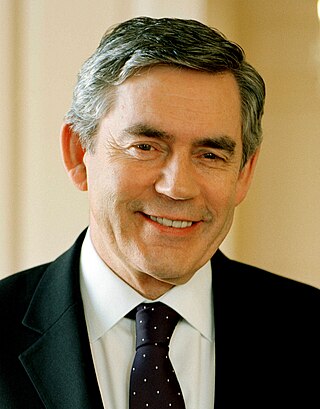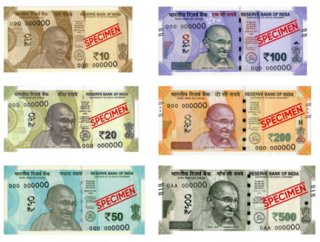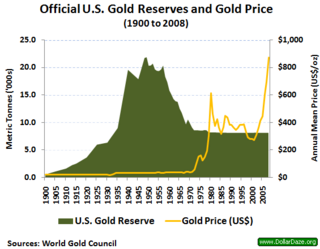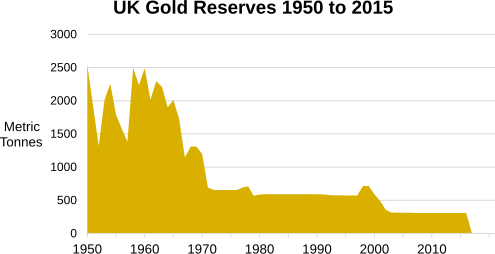
James Gordon Brown is a British politician who served as Prime Minister of the United Kingdom and Leader of the Labour Party from 2007 to 2010. He previously served as Chancellor of the Exchequer under Tony Blair from 1997 to 2007. He was Member of Parliament (MP) for Dunfermline East from 1983 to 2005, and Kirkcaldy and Cowdenbeath from 2005 to 2015. Brown is the most recent Labour Party prime minister and the most recent not to be from England.

The economy of the United Kingdom is a highly developed social market economy. It is the sixth-largest national economy in the world measured by nominal gross domestic product (GDP), Tenth-largest by purchasing power parity (PPP), and twenty-first by nominal GDP per capita, constituting 3.1% of nominal world GDP. The United Kingdom constitutes 2.3% of world GDP by purchasing power parity (PPP).

The Chancellor of the Exchequer, often abbreviated to Chancellor, is a senior minister of the Crown within the Government of the United Kingdom, and head of His Majesty's Treasury. As one of the four Great Offices of State, the chancellor is a high-ranking member of the British Cabinet.
Seigniorage, also spelled seignorage or seigneurage, is the difference between the value of money and the cost to produce and distribute it. The term can be applied in two ways:

Black Wednesday, or the 1992 sterling crisis, was a financial crisis that occurred on 16 September 1992 when the UK Government was forced to withdraw sterling from the (first) European Exchange Rate Mechanism , following a failed attempt to keep its exchange rate above the lower limit required for ERM participation. At that time, the United Kingdom held the Presidency of the Council of the European Union.

Sterling is the currency of the United Kingdom and nine of its associated territories. The pound is the main unit of sterling, and the word pound is also used to refer to the British currency generally, often qualified in international contexts as the British pound or the pound sterling.

NatWest Group PLC is a British banking and insurance holding company, based in Edinburgh, Scotland.

The Indian rupee is the official currency in India. The rupee is subdivided into 100 paise. The issuance of the currency is controlled by the Reserve Bank of India. The Reserve Bank manages currency in India and derives its role in currency management based on the Reserve Bank of India Act, 1934.
In macroeconomics and modern monetary policy, a devaluation is an official lowering of the value of a country's currency within a fixed exchange-rate system, in which a monetary authority formally sets a lower exchange rate of the national currency in relation to a foreign reference currency or currency basket. The opposite of devaluation, a change in the exchange rate making the domestic currency more expensive, is called a revaluation. A monetary authority maintains a fixed value of its currency by being ready to buy or sell foreign currency with the domestic currency at a stated rate; a devaluation is an indication that the monetary authority will buy and sell foreign currency at a lower rate.

A gold reserve is the gold held by a national central bank, intended mainly as a guarantee to redeem promises to pay depositors, note holders, or trading peers, during the eras of the gold standard, and also as a store of value, or to support the value of the national currency.

The United States Gold Reserve Act of January 30, 1934 required that all gold and gold certificates held by the Federal Reserve be surrendered and vested in the sole title of the United States Department of the Treasury. It also prohibited the Treasury and financial institutions from redeeming dollar bills for gold, established the Exchange Stabilization Fund under control of the Treasury to control the dollar's value without the assistance of the Federal Reserve, and authorized the president to establish the gold value of the dollar by proclamation.

Of all the precious metals, gold is the most popular as an investment. Investors generally buy gold as a way of diversifying risk, especially through the use of futures contracts and derivatives. The gold market is subject to speculation and volatility as are other markets. Compared to other precious metals used for investment, gold has been the most effective safe haven across a number of countries.
The Washington Agreement on Gold was signed on 26 September 1999 in Washington, D.C. during the International Monetary Fund (IMF) annual meeting, and the US Secretary of the Treasury, Lawrence Summers, and the Chairman of the Federal Reserve, Alan Greenspan, were present. The second version of the agreement was signed in 2004, the agreement was extended in 2009.
In the period September 2007 to December 2009, during the events now widely known as the Global Financial Crisis, the UK government enacted a number of financial interventions in support of the UK banking sector and four UK banks in particular.

Tajikistan has rich deposits of gold, silver, and antimony. The largest silver deposits are in Sughd Province, where Tajikistan's largest gold mining operation is also located. Russia's Norilsk nickel company has explored a large new silver deposit at Bolshoy Kanimansur. More than 400 mineral deposits of some 70 different minerals have been discovered in Tajikistan, including strontium, tungsten, molybdenum, bismuth, salt, lead, zinc, fluorspar, and mercury. These minerals have been found suitable for mining. Uranium, an important mineral in the Soviet era, remains in some quantity but is no longer being extracted. The Tajikistan Aluminium Company (TALCO), an aluminium smelter, is the country's only large-scale production enterprise in the mining sector. Tajikistan hosts the annual Mining World Tajikistan, an international exhibition on mining in Dushanbe.

Mining in the United Kingdom produces a wide variety of fossil fuels, metals, and industrial minerals due to its complex geology. In 2013, there were over 2,000 active mines, quarries, and offshore drilling sites on the continental land mass of the United Kingdom producing £34bn of minerals and employing 36,000 people.

The sale of UK gold reserves was a policy pursued by HM Treasury over the period between 1999 and 2002, when gold prices were at their lowest in 20 years, following an extended bear market. The period itself has been dubbed by some commentators as the Brown Bottom or Brown's Bottom.

In the United Kingdom, the value added tax (VAT) was introduced in 1973, replacing Purchase Tax, and is the third-largest source of government revenue, after income tax and National Insurance. It is administered and collected by HM Revenue and Customs, primarily through the Value Added Tax Act 1994.

Gold holdings are the quantities of gold held by individuals, private corporations, or public entities as a store of value, an investment vehicle, or perceived as protection against hyperinflation and against financial and/or political upheavals.

Gordon Brown served as Chancellor of the Exchequer of the United Kingdom from 2 May 1997 to 27 June 2007. His tenure was marked by major reform of Britain's monetary and fiscal policy architecture, transferring interest rate setting powers to the Bank of England, by a wide extension of the powers of the Treasury to cover much domestic policy and by transferring responsibility for banking supervision to the Financial Services Authority. Brown presided over the longest period of sustained economic growth in British history. He had previously served as Shadow Chancellor of the Exchequer in Tony Blair's Shadow Cabinet from 1994 to 1997. As Shadow Chancellor, Brown as Chancellor-in-waiting was seen as a good choice by business and the middle class.














